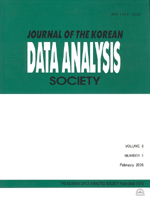스포츠시설 지도자의 감정노동, 소진, 고객지향성의 관계
The Mutual Relation between an Emotional Labor, a Burnout and a Customer Orientation of Sports-Facilities Leaders
- 한국자료분석학회
- Journal of The Korean Data Analysis Society (JKDAS)
- Vol.13 No.4
-
2011.082165 - 2179 (15 pages)
- 10

본 연구는 스포츠시설 지도자의 감정노동, 소진, 고객지향성 간의 인과관계를 분석하여 스포츠시설 지도자 스스로가 조직의 목표를 성공적으로 달성하며 조직에 있어 효율적인 고객관리 방법의 자료를 제공하기 위하여 부산광역시에 소재하고 있는 스포츠시설의 지도자 329명을 대상으로 설문조사를 실시하여 탐색적, 확인적 요인분석으로 모델의 적합성 검정, 타당도 검사와 구조방정식 모형 검정을 위해 SPSS 18.0 AMOS 18.0 프로그램을 활용하여 분석한 결과 다음과 같은 결론을 도출하였다. 스포츠시설 지도자의 감정노동과 소진 및 고객지향성 간의 인과관계에서 스포츠시설 지도자의 감정노동의 하위요인 중 감정표현 빈도가 정서적 고갈에 정(+)적 영향을 주었고, 감정부조화는 정서적 고갈과 비인격화에 정(+)적 영향을 주었다. 소진의 하위요인인 정서적 고갈, 비인격화, 성취감 결여는 모두다 고객지향성에 부(-)적 영향을 주었다.
This study aims at providing the methods of managing their efficient customers in their organizations at achieving successfully their targets by sports-equipment leaders themselves through the analysis of interrelation between an emotional labor, a burnout and a customer orientation. I prepared a questionnaire to 329 sports-equipment leaders in Busan in order to examine the suitableness through the inquiry and verification of this model through SPSS 18.0 AMOS 18.0 Program. The results are as follows: In the relation between the emotional labor, burnout and customer orientation of the sports-equipment leaders (1) frequency of emotional expression gives an affirmative effect (+) to affective exhaustion, (2) dissonance of emotion gives affirmative effect(+) to affective exhaustion and non-personification, and (3) affective exhaustion, non-personification and lack of achievement all give a negative effect (-) to customer orientation.
1. 서론
2. 연구 방법
3. 연구결과
4. 논의
5. 결론
참고문헌
(0)
(0)